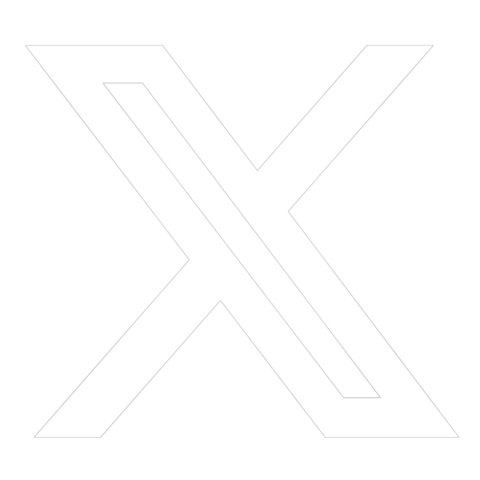Introduction: The Importance of Decentralization in Web3 Development
Decentralization is the beating heart of the Web3 ecosystem. It is the principle that empowers developers, users, and stakeholders by removing control from centralized entities and redistributing it across a network. For smaller and early-stage developers, decentralization offers something critical—autonomy. In a decentralized environment, developers have the freedom to build and grow their projects without interference from centralized bodies, while benefiting from a secure, transparent network.
However, many blockchain platforms claim to be decentralized while still maintaining centralized governance or decision-making structures. This can create significant challenges for developers, particularly those working on smaller projects. Centralized or partially decentralized blockchains often face decision-making bottlenecks, where a small group of large stakeholders controls the future of the network. This leads to a lack of transparency, reduced innovation, and limited influence for smaller developers. For early-stage projects, the inability to shape the direction of the network can be stifling, making it harder to succeed in the long term. That’s where Vitreus stands out, offering true decentralization at the Layer-0 level, empowering developers to have a meaningful role in the governance of the network.
How Vitreus Puts Decentralization at the Core
Vitreus is a blockchain platform that redefines what it means to be decentralized. As a Layer-0 blockchain, Vitreus is built from the ground up with decentralization at its core. Unlike traditional platforms where governance is often an afterthought or centralized among a few key players, Vitreus ensures that all stakeholders—regardless of their project size—have a say in how the ecosystem evolves.
The architecture of Vitreus ensures that governance is distributed, transparent, and inclusive. Every participant in the network has an opportunity to influence key decisions, from protocol updates to new feature developments. This commitment to decentralized governance makes Vitreus a truly community-driven platform, where decisions are made by consensus and not by a select few. For developers, this means they are no longer passive participants in the blockchain ecosystem—they are active contributors to its future.
Through Vitreus’ governance mechanisms, smaller developers can have an equal voice in shaping the direction of the network. Whether they’re voting on protocol changes or proposing new innovations, every developer has the power to influence decisions that could benefit their projects and the wider ecosystem. Vitreus is designed to prevent the centralization of power and create a blockchain environment where all projects, big or small, can thrive.
Layer-0 Governance: Empowering Developers with Control
One of the key innovations that sets Vitreus apart is its Layer-0 governance model. In traditional blockchain platforms, governance is often managed at the application layer (Layer-1 or Layer-2), which can lead to inefficiencies and a lack of coordination across the entire network. By contrast, Vitreus places governance at Layer-0, which gives developers more control over foundational elements of the blockchain, such as protocol upgrades and key infrastructure decisions.
Layer-0 governance empowers developers in a way that has rarely been seen in other blockchain ecosystems. It ensures that all participants have voting rights and influence, regardless of the size of their projects or their stake in the network. This model prevents large stakeholders from monopolizing decision-making processes and ensures that smaller developers can actively shape the future of the platform. For early-stage developers, this level of control is invaluable—it allows them to build with confidence, knowing that they have a voice in how the platform evolves.
The decentralized nature of Vitreus’ governance also extends to protocol upgrades and network improvements. Instead of waiting for a centralized authority to make decisions, developers can propose changes and improvements directly, and the community can vote on these proposals in a transparent and democratic manner. This ensures that the platform remains agile and responsive to the needs of its users while maintaining the security and decentralization that make blockchain technology so appealing.
Why Decentralized Governance Matters for Small and Early-Stage Developers
Decentralized governance is not just a theoretical ideal—it offers tangible benefits, especially for small and early-stage developers. One of the most significant advantages is transparency. In a decentralized system like Vitreus, all decisions are made in a transparent, open manner, allowing developers to see exactly how and why decisions are made. This ensures fairness and accountability, which are critical for building trust among developers and users alike.
For early-stage projects, the autonomy provided by decentralized governance is crucial. These developers are often working with limited resources and cannot afford to be at the mercy of centralized entities that may not prioritize their needs. With Vitreus, they can develop their projects in an environment where decisions are made democratically, ensuring that their voices are heard, and their needs are met. The risk of central control is eliminated, creating a safe and fair ecosystem where all developers can innovate without fear of being overshadowed by larger players.
Moreover, decentralized governance encourages innovation. When developers know that they can influence the future of the platform, they are more likely to experiment, propose new ideas, and push the boundaries of what’s possible. This fosters a culture of continuous improvement, where the platform evolves based on the collective wisdom of its community, rather than the whims of a centralized authority.
Vitreus Ecosystem: Governance-Driven Innovation
The Vitreus ecosystem is designed to support governance-driven innovation, offering tools and resources that allow developers to focus on building while actively participating in the governance of the network. From easy-to-use governance tools to robust developer kits, Vitreus provides everything developers need to engage with the network and drive its evolution.
One of the key benefits of Vitreus governance model is that it empowers developers to propose and vote on new features or updates. This ensures that the platform remains dynamic, with new features being added based on real-world needs and developer feedback. For example, a small developer working on a DeFi project could propose a protocol improvement that benefits the entire network. If the proposal is accepted, that developer has directly contributed to the growth and enhancement of the Vitreus ecosystem.
By placing governance in the hands of the community, Vitreus ensures that the platform evolves in a way that benefits all participants, not just a select few. This governance-driven approach encourages collaboration and creates a thriving ecosystem where innovation is driven by those who are building on the platform.
Conclusion: Build with True Decentralization on Vitreus
Vitreus stands apart by putting true decentralization at the core of its platform. With its Layer-0 governance model, Vitreus empowers developers of all sizes to have a direct say in the future of the network. Smaller and early-stage developers no longer must worry about being overshadowed by larger stakeholders—they have voting rights and influence in the decision-making process.
For developers looking to build scalable, secure, and decentralized applications, Vitreus offers a platform that is driven by its community, transparent in its governance, and committed to innovation. Now is the time for developers to get involved, explore Vitreus’ decentralized governance structure, and be part of a platform that puts them in control. With Vitreus, the future of Web3 development is in the hands of the developers—where it belongs.
The journey doesn’t stop here! Join the conversation and stay ahead in the Web3 revolution by following us on X and connecting with our vibrant community on Discord. Let’s build the future together—one block at a time. Learn more at Vitreus.io!
Decentralization is the beating heart of the Web3 ecosystem. It is the principle that empowers developers, users, and stakeholders by removing control from centralized entities and redistributing it across a network. For smaller and early-stage developers, decentralization offers something critical—autonomy. In a decentralized environment, developers have the freedom to build and grow their projects without interference from centralized bodies, while benefiting from a secure, transparent network.
However, many blockchain platforms claim to be decentralized while still maintaining centralized governance or decision-making structures. This can create significant challenges for developers, particularly those working on smaller projects. Centralized or partially decentralized blockchains often face decision-making bottlenecks, where a small group of large stakeholders controls the future of the network. This leads to a lack of transparency, reduced innovation, and limited influence for smaller developers. For early-stage projects, the inability to shape the direction of the network can be stifling, making it harder to succeed in the long term. That’s where Vitreus stands out, offering true decentralization at the Layer-0 level, empowering developers to have a meaningful role in the governance of the network.
How Vitreus Puts Decentralization at the Core
Vitreus is a blockchain platform that redefines what it means to be decentralized. As a Layer-0 blockchain, Vitreus is built from the ground up with decentralization at its core. Unlike traditional platforms where governance is often an afterthought or centralized among a few key players, Vitreus ensures that all stakeholders—regardless of their project size—have a say in how the ecosystem evolves.
The architecture of Vitreus ensures that governance is distributed, transparent, and inclusive. Every participant in the network has an opportunity to influence key decisions, from protocol updates to new feature developments. This commitment to decentralized governance makes Vitreus a truly community-driven platform, where decisions are made by consensus and not by a select few. For developers, this means they are no longer passive participants in the blockchain ecosystem—they are active contributors to its future.
Through Vitreus’ governance mechanisms, smaller developers can have an equal voice in shaping the direction of the network. Whether they’re voting on protocol changes or proposing new innovations, every developer has the power to influence decisions that could benefit their projects and the wider ecosystem. Vitreus is designed to prevent the centralization of power and create a blockchain environment where all projects, big or small, can thrive.
Layer-0 Governance: Empowering Developers with Control
One of the key innovations that sets Vitreus apart is its Layer-0 governance model. In traditional blockchain platforms, governance is often managed at the application layer (Layer-1 or Layer-2), which can lead to inefficiencies and a lack of coordination across the entire network. By contrast, Vitreus places governance at Layer-0, which gives developers more control over foundational elements of the blockchain, such as protocol upgrades and key infrastructure decisions.
Layer-0 governance empowers developers in a way that has rarely been seen in other blockchain ecosystems. It ensures that all participants have voting rights and influence, regardless of the size of their projects or their stake in the network. This model prevents large stakeholders from monopolizing decision-making processes and ensures that smaller developers can actively shape the future of the platform. For early-stage developers, this level of control is invaluable—it allows them to build with confidence, knowing that they have a voice in how the platform evolves.
The decentralized nature of Vitreus’ governance also extends to protocol upgrades and network improvements. Instead of waiting for a centralized authority to make decisions, developers can propose changes and improvements directly, and the community can vote on these proposals in a transparent and democratic manner. This ensures that the platform remains agile and responsive to the needs of its users while maintaining the security and decentralization that make blockchain technology so appealing.
Why Decentralized Governance Matters for Small and Early-Stage Developers
Decentralized governance is not just a theoretical ideal—it offers tangible benefits, especially for small and early-stage developers. One of the most significant advantages is transparency. In a decentralized system like Vitreus, all decisions are made in a transparent, open manner, allowing developers to see exactly how and why decisions are made. This ensures fairness and accountability, which are critical for building trust among developers and users alike.
For early-stage projects, the autonomy provided by decentralized governance is crucial. These developers are often working with limited resources and cannot afford to be at the mercy of centralized entities that may not prioritize their needs. With Vitreus, they can develop their projects in an environment where decisions are made democratically, ensuring that their voices are heard, and their needs are met. The risk of central control is eliminated, creating a safe and fair ecosystem where all developers can innovate without fear of being overshadowed by larger players.
Moreover, decentralized governance encourages innovation. When developers know that they can influence the future of the platform, they are more likely to experiment, propose new ideas, and push the boundaries of what’s possible. This fosters a culture of continuous improvement, where the platform evolves based on the collective wisdom of its community, rather than the whims of a centralized authority.
Vitreus Ecosystem: Governance-Driven Innovation
The Vitreus ecosystem is designed to support governance-driven innovation, offering tools and resources that allow developers to focus on building while actively participating in the governance of the network. From easy-to-use governance tools to robust developer kits, Vitreus provides everything developers need to engage with the network and drive its evolution.
One of the key benefits of Vitreus governance model is that it empowers developers to propose and vote on new features or updates. This ensures that the platform remains dynamic, with new features being added based on real-world needs and developer feedback. For example, a small developer working on a DeFi project could propose a protocol improvement that benefits the entire network. If the proposal is accepted, that developer has directly contributed to the growth and enhancement of the Vitreus ecosystem.
By placing governance in the hands of the community, Vitreus ensures that the platform evolves in a way that benefits all participants, not just a select few. This governance-driven approach encourages collaboration and creates a thriving ecosystem where innovation is driven by those who are building on the platform.
Conclusion: Build with True Decentralization on Vitreus
Vitreus stands apart by putting true decentralization at the core of its platform. With its Layer-0 governance model, Vitreus empowers developers of all sizes to have a direct say in the future of the network. Smaller and early-stage developers no longer must worry about being overshadowed by larger stakeholders—they have voting rights and influence in the decision-making process.
For developers looking to build scalable, secure, and decentralized applications, Vitreus offers a platform that is driven by its community, transparent in its governance, and committed to innovation. Now is the time for developers to get involved, explore Vitreus’ decentralized governance structure, and be part of a platform that puts them in control. With Vitreus, the future of Web3 development is in the hands of the developers—where it belongs.
The journey doesn’t stop here! Join the conversation and stay ahead in the Web3 revolution by following us on X and connecting with our vibrant community on Discord. Let’s build the future together—one block at a time. Learn more at Vitreus.io!









